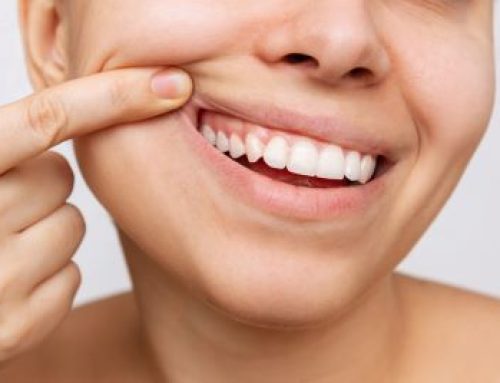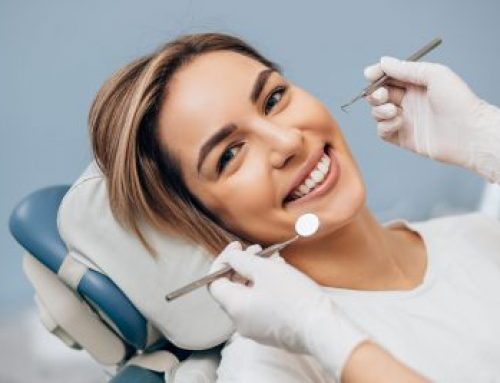 For three months, the world went into pause mode. Governments busied themselves in figuring out the best strategies to cope with the raging pandemic and healthcare workers immersed themselves in protecting the vulnerable and treating the affected. Now that the world is finally slowly opening up, most of us are realizing that the lockdown has created many unrealized issues. For instance, for three months, non-emergency medical care was completely put on hold, which in turn, has led to the emergence of untreated medical issues that need immediate attention. These non-emergency issues include cases related to domestic violence as well as undiagnosed cancers.
For three months, the world went into pause mode. Governments busied themselves in figuring out the best strategies to cope with the raging pandemic and healthcare workers immersed themselves in protecting the vulnerable and treating the affected. Now that the world is finally slowly opening up, most of us are realizing that the lockdown has created many unrealized issues. For instance, for three months, non-emergency medical care was completely put on hold, which in turn, has led to the emergence of untreated medical issues that need immediate attention. These non-emergency issues include cases related to domestic violence as well as undiagnosed cancers.
One of the otherwise mandatory things that received no attention during these last three months is routine dental care. People with cavities and cracked teeth are still ignoring these problems, not realizing that oral diseases too can lead to life-threatening situations. Most dental diseases start with a little bit of irritation and eventually advance into great pain and discomfort. Normally, dentists are able to detect and treat these problems which they are still in their nascent stage. However, the current pandemic has left everything in a haphazard state.
The Centers for Disease Control and Prevention, on March 16, advised all dentists to suspend all routine services. They were instead asked to accept only emergency cases. Though the decision was important to control the pandemic as well as preserve personal protective equipment, it led to many oral health issues going undiagnosed. To make up for this, dentists will now have to conduct more elaborate and expensive procedures and it will take some time to clear the backlog.
People do not take oral diseases seriously. However, not many people know that oral diseases can turn chronic. For instance, periodontitis, which affects the gum, causes bleeding. Very often, bacteria enter the bloodstream and cause abscesses. These bacteria can also lead to heart valve infections and sepsis in the worst-case scenario. Periodontitis can especially be harmful to patients with diabetes. Diabetic patients with high blood sugar are often highly susceptible to periodontitis and by controlling periodontitis, diabetic patients can improve their blood glucose. High blood sugar leads to slow healing, which is often the cause of oral infections.
Periodontal disease is especially bad for pregnant women as they run the risk of passing bacteria to the uterus through the bloodstream. Several studies have also linked periodontitis to premature births and gestational diabetes. That apart, approximately 50% to 70% of all pregnant women suffer from a condition called pregnancy gingivitis. Pregnancy causes the concentration of certain hormones to increase. This, in turn, makes the blood vessels in the mouth more permeable, thereby allowing the bacteria in the mouth to move to various parts of the body. It is, thus, that dental check-ups were included in routine care for moms-to-be until the lockdown changed everything.
Not many people know that cardiovascular ailments and atherosclerosis are responsible for almost 25% of all deaths in the U.S. When inflammatory plaques obstruct the blood vessels, the supply of oxygen to the body becomes disrupted, which in turn, leads to heart attacks and strokes. Though no studies have confirmed this, people with gum diseases are two to three times more susceptible to a heart attack or cardiovascular mishappening.
Currently, several studies are being conducted to study the relationship between gum disease and heart-related ailments. The minds working on these studies believe that the bacteria caused by periodontitis enter the endothelial cells of the blood vessels. One particular study found the presence of periodontal pathogens in about 40% of all atherosclerotic lesions.
People who have been ignoring their routine dental check-ups must understand that by doing so, they are increasing their chances of developing various medical conditions. For instance, most oral cancers become known during routine dental exams. Similarly, doctors can detect the presence of HIV/AIDS by checking the mouth for non-healing ulcers and black tongue coating. Bulimia, on the other hand, can be detected by studying the teeth for signs of enamel erosion.
Dentists are usually the first to detect various problems that require advanced treatment. Thus, those delaying their routine dental check-ups are also delaying their chances of getting various medical conditions detected in time.
If you are looking for a dentist, HPS Advanced Dental Care would love to see you. Dr. Heather and Dr. Maltese are gladly accepting new patients.
We are located at 4741 24 Mile Rd. Shelby Township, MI 48316, and we can be reached at (248) 652-0024. We look forward to meeting you!





